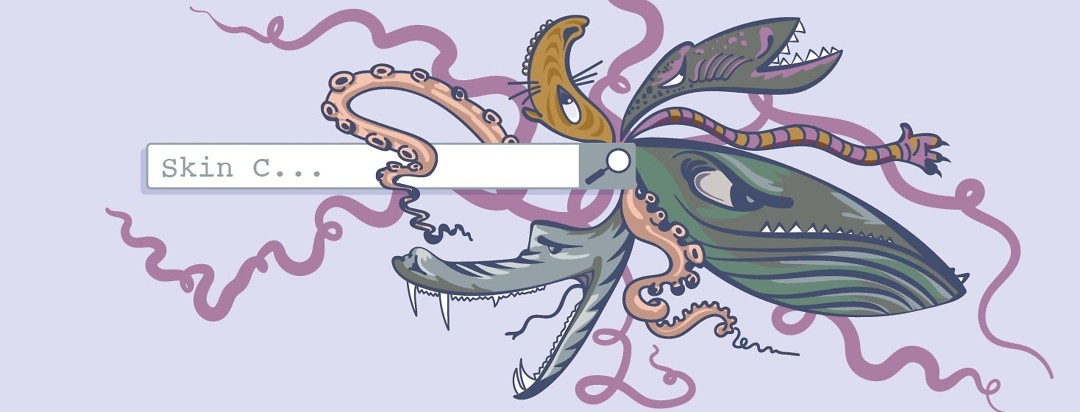The Fear and Safety in Google Images
Let’s face it, internet searches are the natural go-to for everyone for everything. From recipes to car prices, from the menu for a favorite restaurant to the lyrics of the song you love in that one commercial - we are all about a quick and easy online search. We may even look at images when a mole pops up and we're afraid it's skin cancer.
Two sides to Googling a condition
Afraid you have skin cancer? It goes without saying that the internet is the fastest way to make yourself feel better about a medical issue you or a loved one may be experiencing. By the same token, that all-too-accessible search field can be the portal to a very dark place when you are looking for reassurance regarding a diagnosis...Especially, if you opt to browse images.
A collection of skin cancer images
I won’t pretend to tell you how many skin cancer images are available on Google. As with any other searchable topic, the list of images goes on forever. Internet users are offered every size, shape, and color of skin anomaly when the words “skin cancer” are entered into the search field.
Image search reassurance
I will tell you this: if you are looking for reassurance that the little pink spot on your back is nothing, you will find that exact reassurance in an image search. There exist some horrifying images of dark black and misshapen moles in the results of an image search. It is easy to breathe a sigh of relief when you spot photo after photo of moles and raised rashes that look nothing like your tiny spot.
What fear looks like
On the other hand, if you are only mildly concerned and curious about what skin cancer may look like on the surface of the skin, a brief scroll through Google’s images may set your hair on end and create within you a paranoia like no other. The vast array of images is overwhelming, in many ways misleading, and begs explanation.
Avoid the image search when you're afraid you may have skin cancer
My advice as a skin cancer patient and melanoma survivor? Avoid searching images at all costs no matter which of the above scenarios may apply to you. There is a certain level of fear and panic conjured by the results of what seems like a straightforward online search.
Exaggerated search results
In addition, that same search can yield a feeling of safety for those who want desperately to believe an itchy pink mole is nothing compared to the virtual horror show displayed before them as they peruse the grotesque worst-case-scenario pictures on their monitors. Nothing can be gained by trusting what you see in a general search online, and nothing takes the place of a visit to a dermatologist.
Dermatologist over the internet
I have experienced both melanoma and basal cell carcinoma. My melanoma was brown but not especially dark, roughly the shape of a horseshoe, and could fit beneath the eraser on a number 2 pencil. All of my basal cell carcinomas were, literally, dry barely visible flakes of skin that would not go away and had begun to itch slightly.
Looks can be deceiving
No image search would have ever convinced me to see my doctor about a dry flake of skin. My basal cell carcinomas were spotted by my dermatologist and removed via Mohs surgery--something that would not have happened if I had decided to put my trust in online images.
Be proactive
If you are on the fence about having your skin checked or simply wondering why that one little spot isn’t fading, make an appointment to see a dermatologist. When your curiosity starts to build and you find yourself hovering over the “images” option on Google, step away from the keyboard. Skincancer.net offers a group of images broken down into the clearly labeled skin types. Being aware of changes in your skin is one thing, being scared out of your mind or lulled into not being proactive is quite another.

Join the conversation